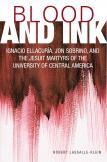Seeds of the Church
Ignacio Ellacuría, S.J., has long been known as a major voice in liberation theology in general and in the particular role of education in promoting human liberation. In this present book, whose publication coincides more or less with the 25th anniversary of the violent death of Ellacuría, his Jesuit brothers and their two lay colleagues, he appears with far greater definition than heretofore in English-language publications. In Robert Lassalle-Klein’s exhaustive study, Ellacuría is presented as a Jesuit, a scholar, a pedagogue and, yes, a disciple who learns from others to refine his understanding of the reality of El Salvador, particularly from the example of the life of Archbishop Óscar Romero and, equally important, from the experience of the poor and oppressed Salvadorans.
The greatest value of this text to American readers will surely be the richness of the author’s account of Ellacuría’s intellectual and spiritual background for a better understanding of his essays published, for example, in the collection edited by Michael Lee (Ignacio Ellacuría: Essays on History, Liberation and Salvation). Lassalle-Klein provides a very detailed account of the early efforts to re-orient the Central American Jesuits to a commitment to the option for the poor announced at Medellín in 1968, a thorough discussion of the intellectual roots of Ellacuría’s thinking in the work of Xavier Zubiri and Karl Rahner, S.J., and a tribute to the spiritual influence of Miguel Elizondo, S.J., and Óscar Romero. Through it all we get a clear picture of the growing sense among the Jesuits of El Salvador and in the work of the Catholic University José Simeon Canas, that a solution to the plight of El Salvador awaited the emergence of the voices of the marginalized.
They above all would be the agents of change, and the role of the university would be to help bring them to this point. This realization is at the heart of Ellacuría’s mature thinking and explains his well-known assertion that before he taught a class he would ask himself what its topic had to contribute to the well-being of El Salvadorian society, and if he could not answer the question, he would not teach the class. But he probably could always answer the question. And if we do not hear as much about the other martyrs or even about Jon Sobrino, as seems promised by the book’s title, it is no doubt true that it was because of Ellacuría’s life and work that the murders took place. It was he, above all, whom they were out to get.
If Lassalle-Klein’s book has a weakness, it may be that it is too detailed, or at least too detailed for some potential readers. Some will relish the minutiae of the story of how Ellacuría and others maneuvered the Central American Jesuits toward the option for the poor; others will perhaps luxuriate in the frankly arcane concept of “sentient intelligence” in the work of Xavier Zubiri (surely this will be a very small group) and others more theologically in the know will find fascinating Ellacuría’s efforts to wrestle Rahner into the camp of the politically aware. Many more will respond to the Ignatian and Trinitarian spirituality outlined in the concluding pages, to the drama of Romero’s “conversion” and to the exploration of the role of “the crucified people” in the historical reality of El Salvador. Relatively few, it would seem, will find all of these distinct discussions equally nourishing, though it is certainly true that they were all important to Ellacuría himself. Perhaps we should put this down to a less than entirely successful transposition from the format of a scholarly dissertation to that of a published book. The number of times in which we are treated to phrases like “in the following section I will briefly outline...” could certainly have been dramatically reduced.
Blood and Ink is definitely a worthwhile venture, though it might have been better as two books rather than one (Blood and Ink?). The account of Ellacuría’s intellectual influences and the growth of his mature thought is one story. The complexity of the times in El Salvador and the important role of the university is another. And while it is important to see that the two are closely related, and indeed that the maturity of Ellacuría’s thought depends on realizing the close connection between blood and ink, there may just be too much in the one volume to digest, particularly since Lassalle-Klein, in what again may be the residue of the dissertation mode, sometimes goes into rather more detail than is needed to make his points.
All that said, what is very clearly established throughout the book, perhaps because of the detail, is why Ellacuría and the others had to suffer violent deaths. The term martyr is often stretched in our world today, but in the case of these individuals it is clearly accurate. Like Jesus before them and because of the way in which they saw Jesus in the lives of the crucified people around them, they paid the price of challenging entrenched power. Just as with Óscar Romero, one wonders what their futures would have produced had they been allowed to live. And yet one is led toward Tertullian’s conclusion that “the blood of martyrs is the seed of the church.” Their words and their lives are validated in their horrifying conclusion, and they give us hope. Lassalle-Klein’s book enriches our understanding of what we have lost and, despite and through our loss, all that we have been given.
This article also appeared in print, under the headline “Seeds of the Church,” in the November 10, 2014, issue.








